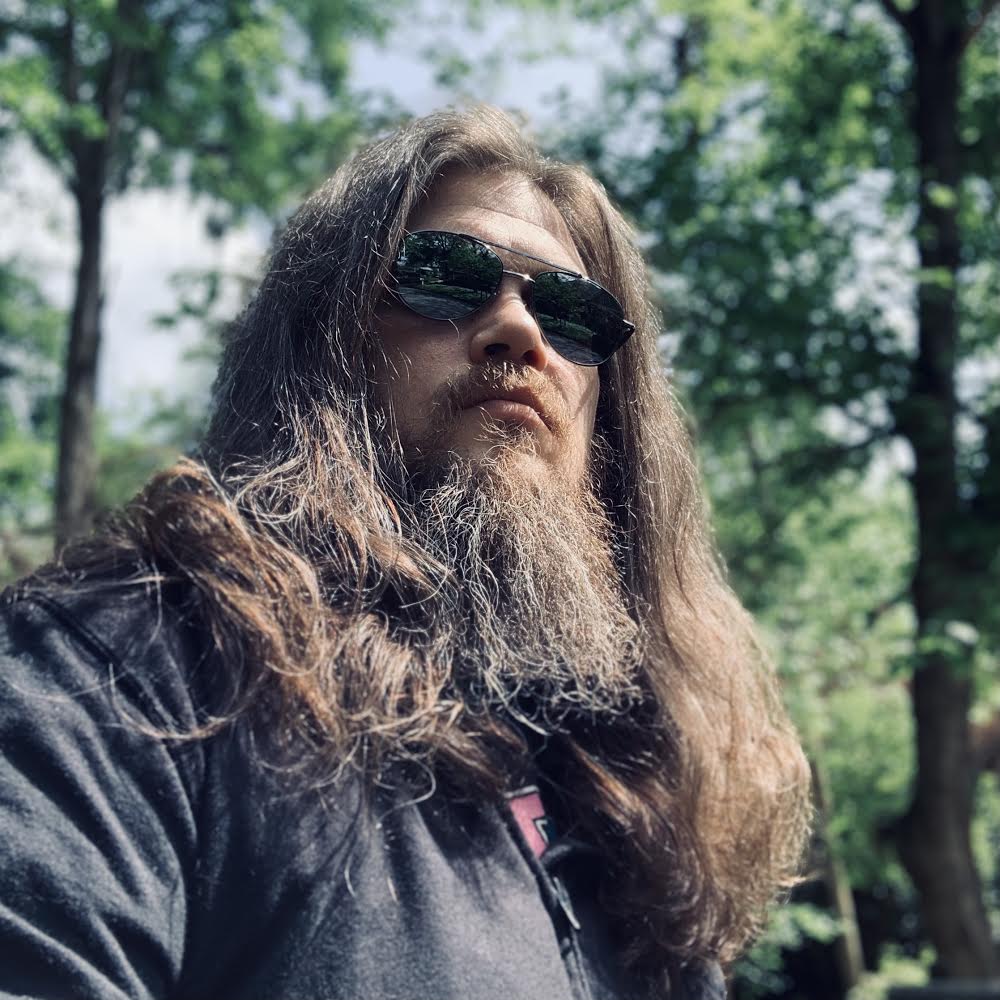X-Men crossover X of Swords' Tarot-themed secrets revealed by Tini Howard
Tini Howard discusses the symbolism and cultural ramifications 'X of Swords' brings to the X-Men line
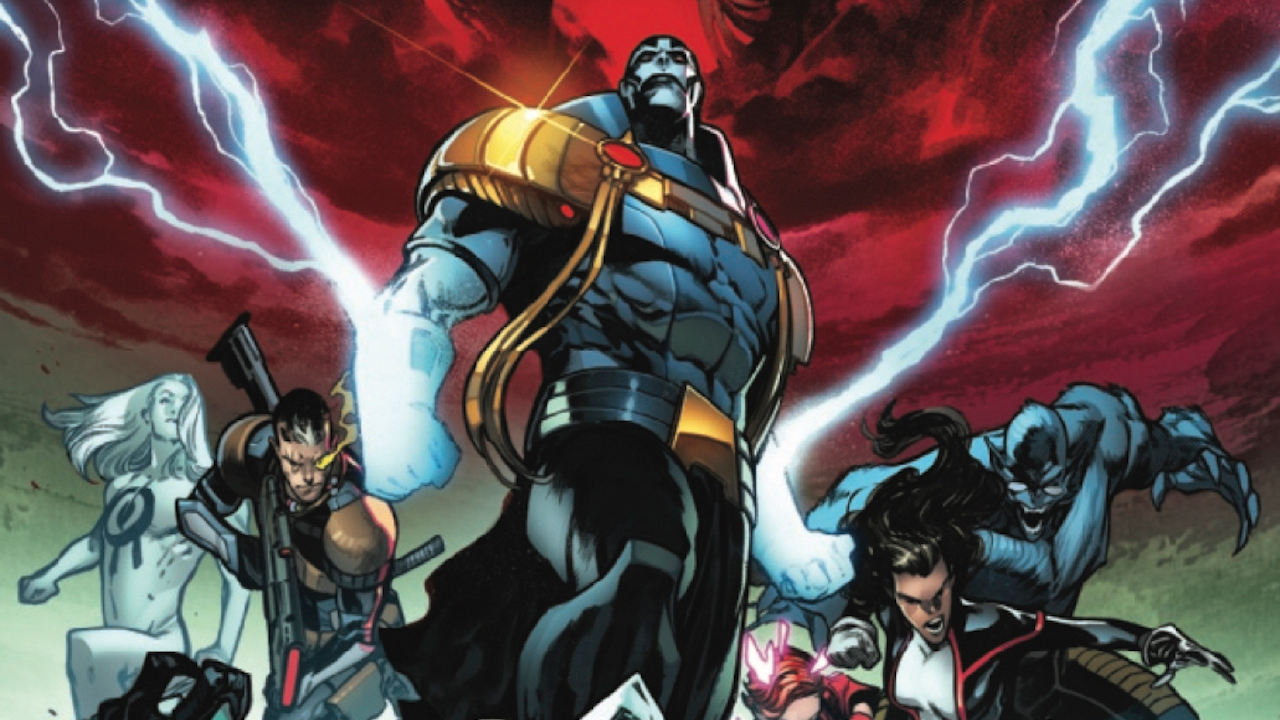
The 'Dawn of X' X-Men era's first crossover 'X of Swords' kicks off in this week's X of Swords: Creation #1, which sets the stage for the epic 22-part event, which stretches through every title in the X-Men line – all headed up by the event's architects, X-Men writer Jonathan Hickman (so-called 'Head of X') and Excalibur writer Tini Howard.
Building on story seeds that have been growing since the launch of 'Dawn of X,' one of Howard's major contributions to 'X of Swords' – beyond naming the event, which is pronounced "Ten of Swords" – has been the conception of a new type of mutant magic which drives the story, and injecting symbolism from the fortune-telling art of Tarot cards into the structure.
Newsarama spoke to Howard just ahead of the release of Creation #1, co-written by Hickman and Howard with art from Pepe Larraz, to discuss what it means to build a mutant culture (including the less expected parts) and how Apocalypse's quest to do that has led directly to the crisis unfolding in 'X of Swords.'
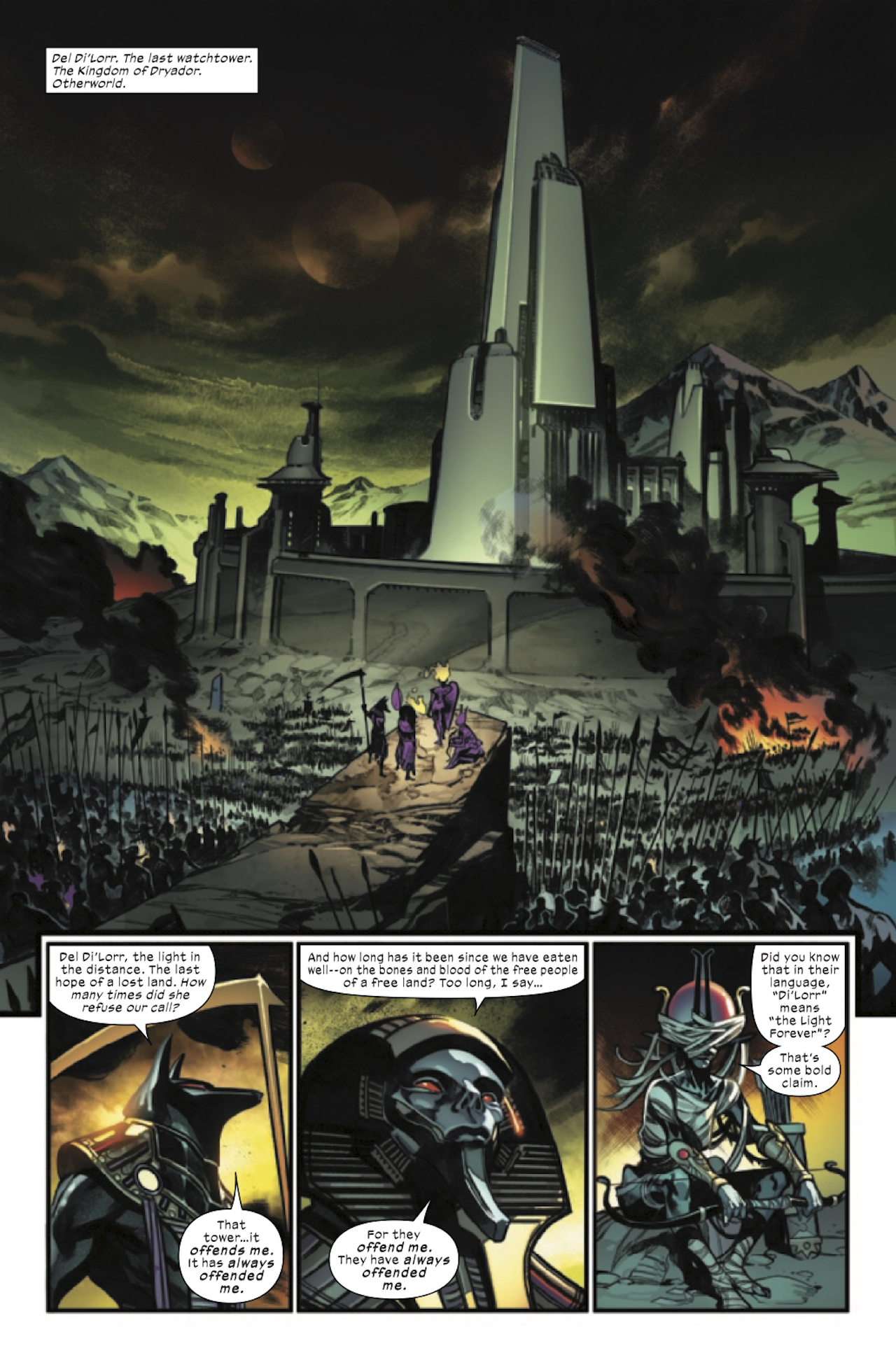
Newsarama: Tini, you're one of the 'architects' of 'X of Swords' alongside Jonathan Hickman, with the two of you writing Excalibur and X-Men, respectively. At what point did it become clear this was the specific story you were building toward? When did the plot of 'X of Swords' really crystallize?
Tini Howard: The X-Men editors and creators all get together and meet in a room physically as much as possible – before COVID-19, that was a couple of times a year. The last time was at C2E2, right before things started shutting down. So we spend a lot of time in the room together, and there's a lot of stuff that comes about in ways that are maybe more codified than other comic-making experiences I've had.
We all discuss our plotlines, and the core of the discussion became this idea that Jonathan and I both had to tell stories about Apocalypse, who is an important figure in the 'Dawn of X' era and in 'X of Swords.' And to Jonathan's credit, instead of saying, "Hey, I'm telling an Apocalypse story. Back off," he was eager to build a story together. We have fun building off each other – I guess that's why the term 'architects' has been used.
And not just the two of us – it's the whole X-Men office. We really trust each other as storytellers and as people, as writers. I knew before we decided to do 'X of Swords' that Jonathan and I were working together to tell this story about Apocalypse that became the central narrative of the crossover.
Get the best comic news, insights, opinions, analysis and more!
We were throwing out ideas, and characters, and story beats, and locations, and it became clear that this idea we were building, that Jonathan had been building toward, would become the basis of the first 'Dawn of X' crossover, and that it lined up with what I was doing, so he invited me to come on and co-write it with him, which was really exciting for me. So, of course, I said yes, and now we're talking about it!
As far as when it crystallized, it's hard to say. We all kind of collaborate on the ideas and the plots, and then someone will come out and say "Oh, this is how we can do this, and this will be an arc of this," and so on. We plan story beats organically, then put them together as the story requires.
Nrama: 'X of Swords' – I said "X of swords," I should say "ten of swords." Reading it, my brain wants to pronounce the letter and not the numeral.
Howard: That's my fault. Actually, it's Jonathan's fault. [laughs] He named Powers of X [pronounced "powers of ten"] and I was like, "OK, if we're using X as ten…"
Nrama: It makes perfect sense – even symbolically, the X is like a clashing or crossing of swords.
Howard: Right? I think one of the first critiques Jonathan and Jordan gave to me was "What if people say 'cross of swords?'" and I was like "Well that's fine too!"
Nrama: 'X of Swords' was originally announced as a smaller crossover with fewer chapters. But it gained a lot of additional parts in the months when the comic book direct market was shut down due to COVID-19. How did your part of the story change in that time, and how did that affect the way you look at 'X of Swords' as a whole?
Howard: We planned everything out before COVID changed the whole landscape. We knew there was a chance things could get really bad in the industry, but we charged full-steam ahead, kind of holding our ground – this is comics, this is what we do, and we love it.
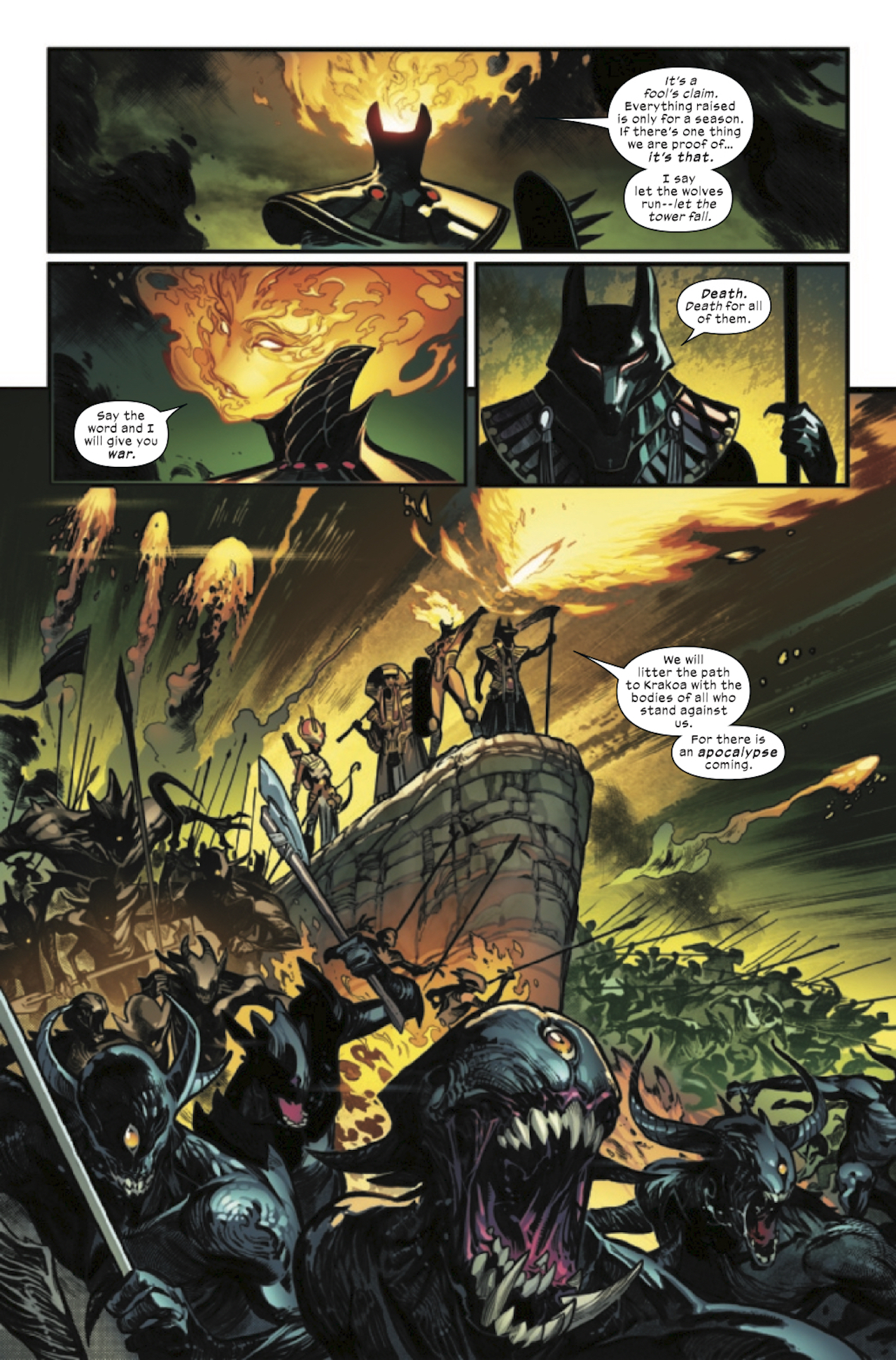
Really it was that we realized that, if the event was going to move in the schedule, it had to be something a little different, and that we could make it bigger, and thankfully we have no shortage of ideas among us. So it was less like, "You have to make it bigger," and more like "We can make it as big as you want to go." We always have more we want to do.
We spent so much time brainstorming ideas, there are a lot of things that comprise the thematic core of the event that I think wouldn't have come through as they do if we did it in less parts.
To me, this feels like the way the story was meant to be told – the extra space lets us deliver not just big blockbuster story beats, but those important character moments too.
Nrama: Like you just said, the title 'X of Swords' is your handiwork. Group editor Jordan D. White told us you definitely know your Tarot, and that we should take the symbolism you're using as directly as we like. How did the idea to incorporate Tarot symbolism into the story come up, and how have you guided other writers in using it in their parts of the story?
Howard: There was already some Tarot imagery in Powers of X and House of X as well, so it's not exactly brand new. And there's been Tarot mythology in the X-Men before – there's a mutant named Tarot, Gambit's had Tarot cards. I'm not the first person to incorporate these concepts. And of course, a lot of this symbolism has existed throughout different parts of human history and myth.
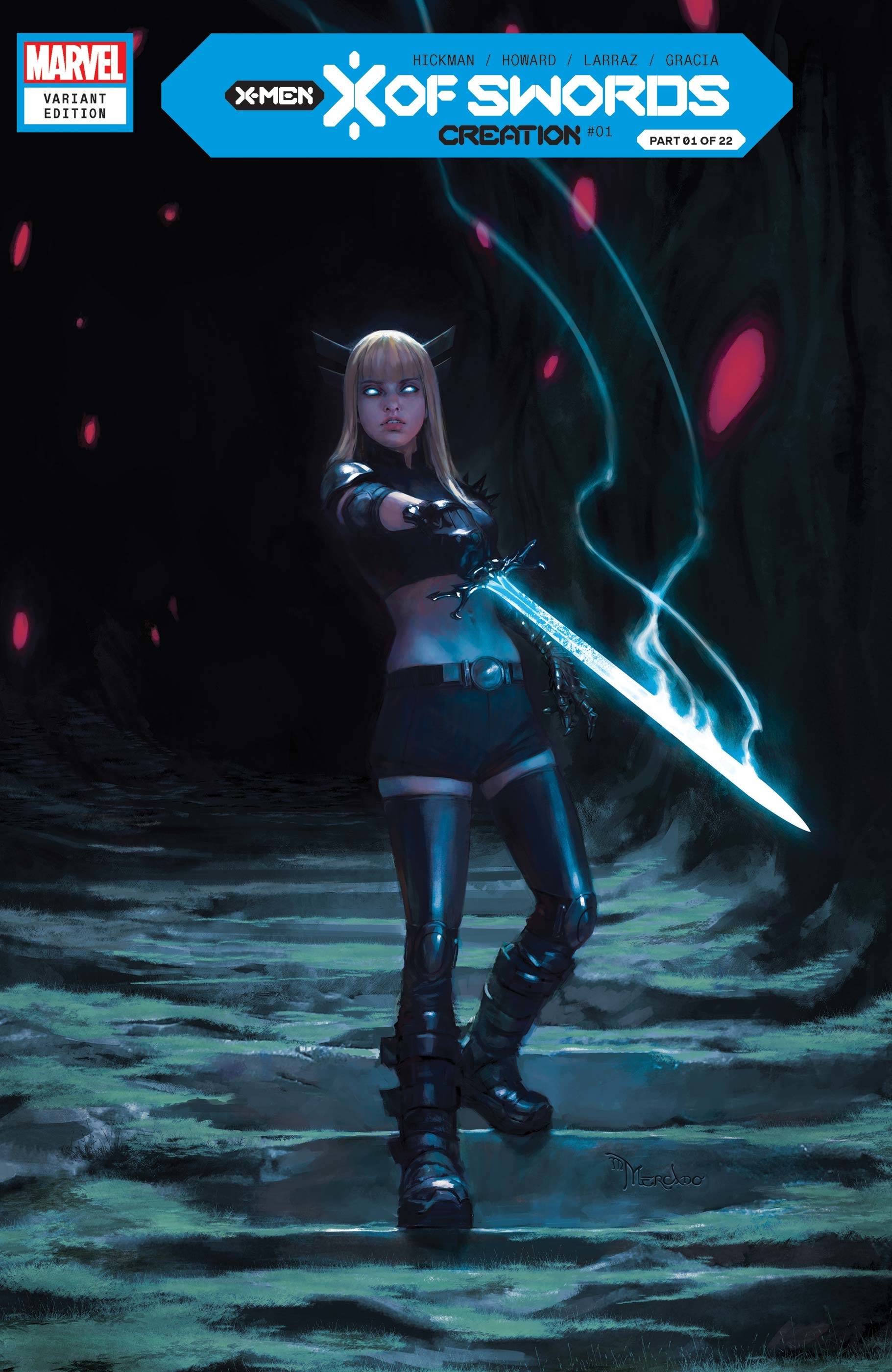
But the reason I think Tarot dovetails nicely with comics is, when you deal out a spread of Tarot cards, what you've really got is a narrative that's told sequentially through pictures that form a story of where things might be going. Kinda like comics, right?
So I think Tarot and comics work together really nicely as visuals that guide the potential for a story.
As for the Ten of Swords itself, well, the Ten cards always symbolize an ending.
If you're not familiar with Tarot cards, they have four suits, and each card is numbered, kinda like playing cards – and Ten is the last card of each suit. So cards that are the Ten of their suit usually symbolize the culmination of an idea, something coming to an end.
Nrama: That's succinct. And… ominous…
Howard: [laughs]
Nrama: You mentioned the mystical in there. That's kind of the side of mutantdom and Krakoan society you've been exploring in Excalibur, visiting Avalon and the Otherworld as part of Apocalypse's plans – I have no idea how to pronounce the symbol so I'm saying Apocalypse.
Howard: That's OK, you're human! That's what you're expected to call him. You don't have the elevated mutant tongue that would allow you to say his Krakoan name.
Nrama: Oh good, I feel a little better about it then [laughs]. Excalibur #12 involved the completion of Apocalypse's ritual to complete a gate to the Otherworld. How do that ritual and Apocalypse himself fit into 'X of Swords'? He's had so many roles in mutant history.
Howard: Apocalypse was the first character I really became compelled by their future when I read the treatment for what Jonathan was planning, and was given the offer to come on board if I liked the ideas and be a part of them. I did – and the thing that really stuck with me was this idea for Apocalypse, what sort of person he becomes.
Mutants had this kind of really fast turnaround where they went from being actively hunted and barely able to survive, let alone thrive as a culture, to having their own island and their own society to build on. But for most societies, anthropologically, they go through this long period where they are building a culture and a history and things that go along with that.
Mutants never got that. They went from running from extinction and being persecuted to like, here's your kingdom. But to Apocalypse, there's still a lot of work to be done, a mutant cultural heritage and traditions to build – things like the idea of magic.
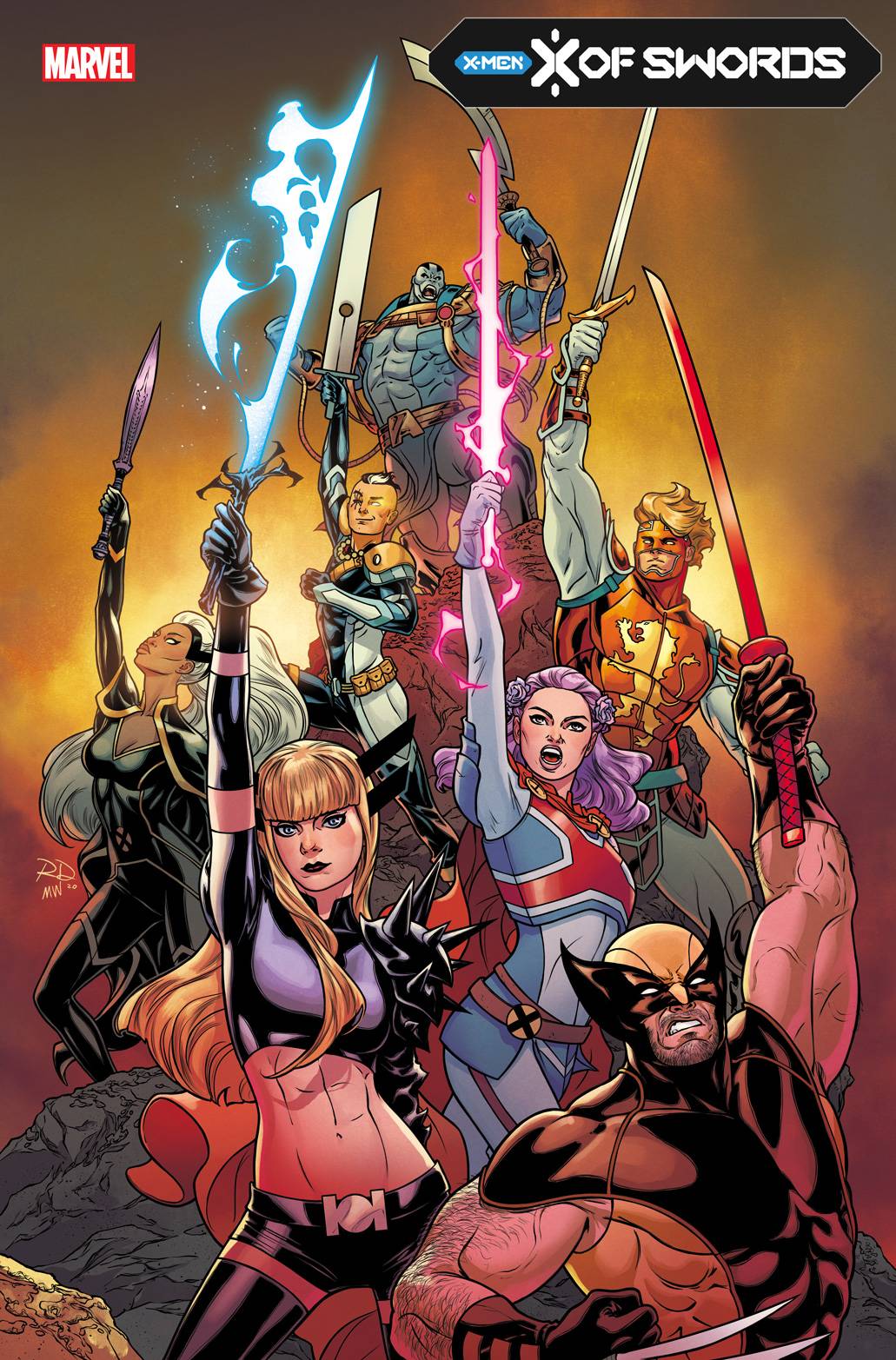
Anthropologically, culturally, magic is an expression of wisdom and ideas that are developed over the development of a society. So Apocalypse is getting into these ideas of building a concept of mutant magical tradition. It's all about what magic really is, what it can do, what purpose does it serve – it's very cerebral but we get into it in the very beginning.
Apocalypse comes forth with this idea of mutant magic and what it means to him, and how he plans to practice it. And it all comes off as a bit of a threat. But what he's been doing has been seeded for a long time, all the way back to House of X, Powers of X, Marvel Comics #1000, you'll see elements that were foreshadowed in those stories come into play.
You'll learn a lot of what Apocalypse is doing and what his actual goals are in X of Swords: Creation #1.
Nrama: Playing off that idea of magic as a sort of cultural interpretation of wisdom, something that mutants are now developing and which actual human cultures have developed in the real world, and of Tarot as this collection of symbols and ideas that echo through different cultures, will we see something that is equivalent to, for lack of a better term, a mutant version of Tarot?
Howard: Krakoan society is something we talk about, something we brainstorm a lot about in the X room. We do a lot of thinking about what it means to be a mutant who lives on Krakoa. And in some ways, the idea of Krakoa being not just a place, but a culture complicates it for certain mutants. A lot of mutants come to Krakoa with their own cultural practices and beliefs.
Some mutants take to it right away, but others don't want any part of it. Like, Pete Wisdom, for example, he wants to be at home, doing his thing – he has no interest in living on Krakoa. But for other mutants, it becomes really easy to embrace this idea of Krakoan identity.
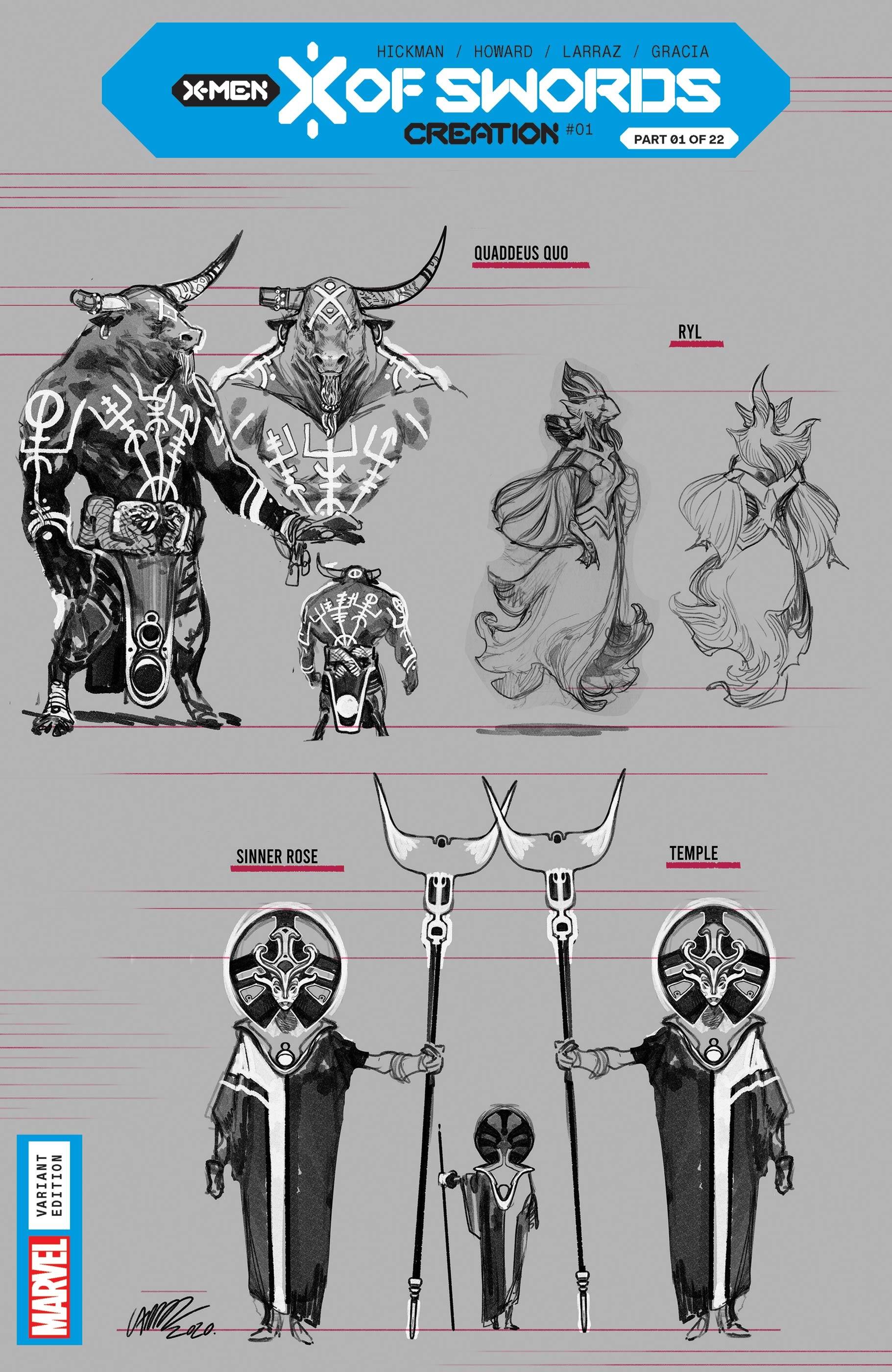
And that does include mutants creating their own cultural practices, their own Krakoan interpretation of things. I think the idea of mutant tarot cards is maybe a bit literal, but we will definitely see the mutant version of a lot of those archetypes that are represented in Tarot – some of them perhaps even physically. We'll see the X-Men and parts of the story come to embody concepts that go along with Tarot cards like The Fool, The Hierophant, The Tower, and so on.
Nrama: So then the parallel question is if Tarot is a tool for fortune-telling, what role does fortune-telling play in a society like Krakoa, where there are mutants who can literally read minds or see the future in a concrete way? How much does that factor into 'X of Swords?'
Howard: I don't want to answer that first question, and it's not because it's not a good question. It's actually a great question – but the way that writing in a team and spoilers work, I really don't want to give anything away about what might come after 'X of Swords.'
What I will say is, I encourage people to think about how Tarot is not a device for predicting the future, it's a tool for piecing together narrative ideas about things that might happen.
I don't want people to think that I, like, sit down and constantly think about Tarot or that it's an ideology or that I'm writing 'X of Swords' cause I really love Tarot.
The reason I have studied the Tarot, and own a bunch of Tarot decks, and am so fascinated by the Tarot is because it's really interesting to me as a tool of self-discovery. I don't try to tell the future with the cards, I use them as a tool to learn something about myself.
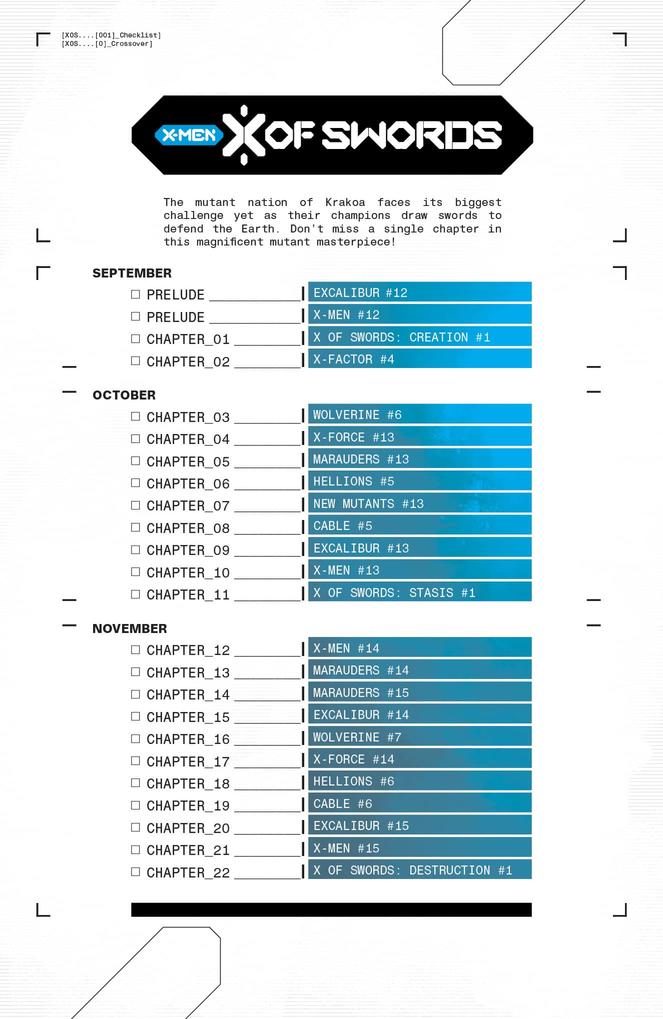
So even if there's no significance or magical power behind Tarot cards, even if they're just nice cards with pretty pictures that I hold in my hands and arrange in a certain way, that's still valuable because it makes me consider the idea of higher guidance, and the relationships of these archetypes to each other, in a way that might offer some insight into things I'm experiencing.
If I get a lot of cards like The Empress or the High Priestess, for example, cards that represent this archetype of nurturing energy, it may give me insight into this feeling that I need to be more nurturing to myself.
As far as Tarot and its role versus something like actually predicting the future, Tarot isn't about specifically telling the future, it's about examining the part you'll play in it - because the future is always in flux.
Nrama: Speaking more generally about 'X of Swords,' there are some actual magical swords in play in the story – some of which are likely recognizable to readers. What's your perspective on how those swords were chosen and how it was decided who would wield each sword?
Howard: We spent a lot of time sitting down and coming up with every single magical sword and special sword from the Marvel Universe we could come up with, and every character who already uses swords that could play a role, and every character who doesn't use swords that would still be cool to have play a role. [laughs]
And then we spent even more time hashing out the pairings and deciding which swords would actually make sense to use, and coming up with ideas.
We brainstormed new stuff – like, this has never happened but it would be cool, or it wouldn't it be awesome for this to exist? Hey, this character doesn't have a foil and they need one – a foil like a character relationship, not a foil like a fencing foil. I realize I'm talking a lot about swords, so I should make that clear [laughs].
We just do every kind of brainstorming possible, cause we're all in contact as much as possible. We chat almost every day – very little gets done without consulting the group. It's not like we can't do something without having it ratified, but it's fun to plot things out in the group and collaborate.
It's fun to plan my next arc myself – it's more fun to say "Hey guys, I'm thinking of doing this, is this a bad idea or a good one?" and then being able to get the initial reaction of people you trust a lot is really cool.
Nrama: On the other side of that coin, there are the Swordbearers of Arakko. There's a mysterious villain who still hasn't been named – but a lot of evidence suggests it may be someone that readers will ultimately recognize.
Howard: Mm hmm…
Nrama: Obviously, unless you really want to surprise us, you can't say who that is.
Howard: Oh, it's Gwenpool. [laughs]
Nrama: Whoa that makes so much sense because she uses those swords! [laughs]
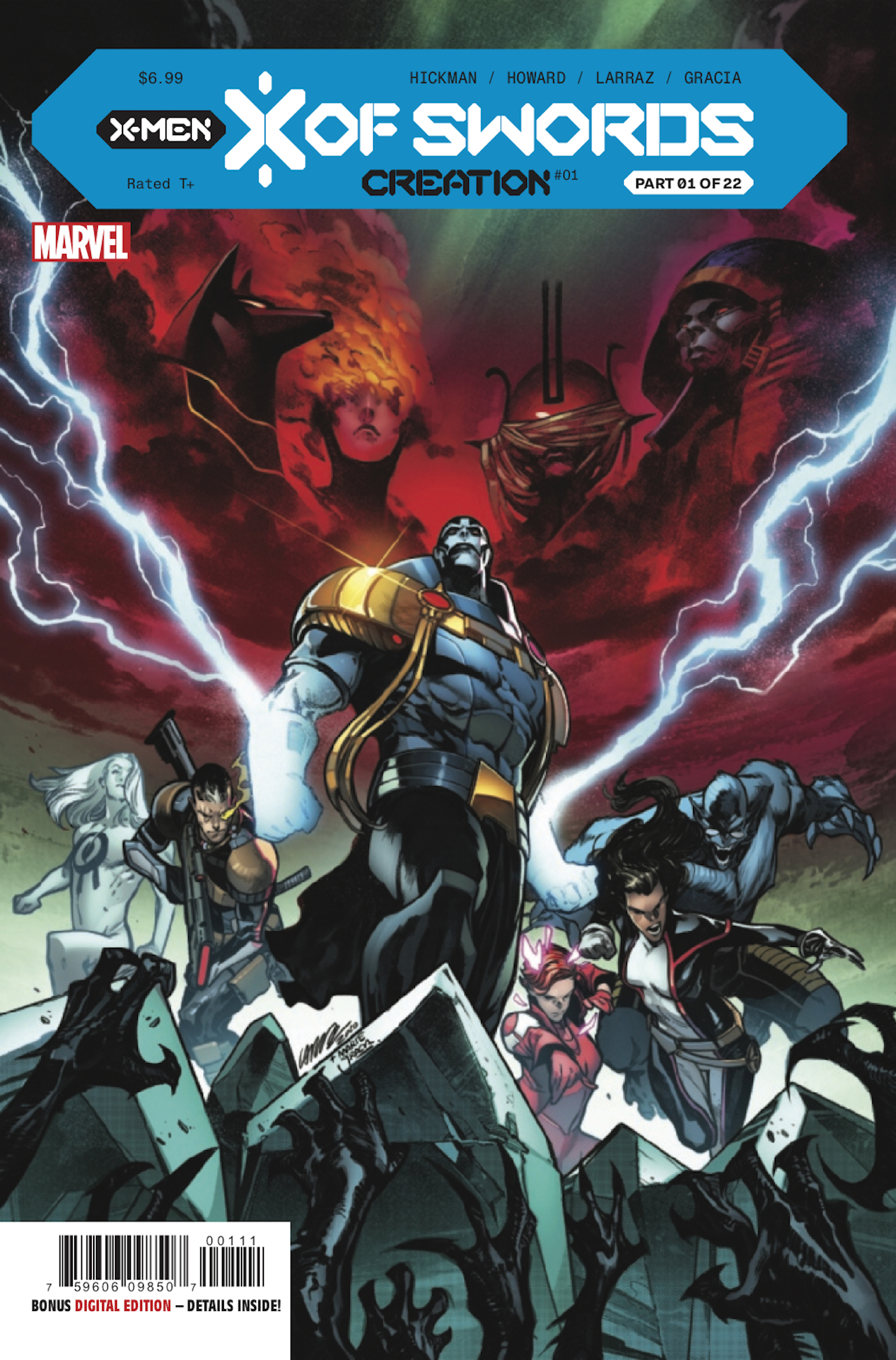
What I want to ask is, what's the calculus that goes into taking a well-known character and switching around their role in a surprising way?
Howard: We do a lot of moving characters around on Krakoa. A lot of the fun of Krakoa is the great experiment of seeing people as war captains, as council members, as kingmakers, as resurrectionists – all sorts of things.
There are all kinds of new roles on Krakoa that, in some cases, are things that have analogs, like things mutants already understand such as government and leadership, and sometimes it's things humans don't have.
What do you do when you have five friends who used to be your classmates and drinking buddies, and now their job is to bring people back from the dead? That's kind of elevated!
One of my favorite things about being a writer and writing at Marvel is taking characters and putting them in new archetypes, new roles, new challenges, so the whole concept of Krakoa is like catnip to me. So specifically in 'X of Swords,' a big part of it is constantly seeing the characters challenged the deepest ways they can be challenged.
So as far as how do we approach putting characters in new roles in general? It's always that it has to be additive. We don't want to take characters backwards, we want to challenge them in new ways and tell a story that hasn't been told before.
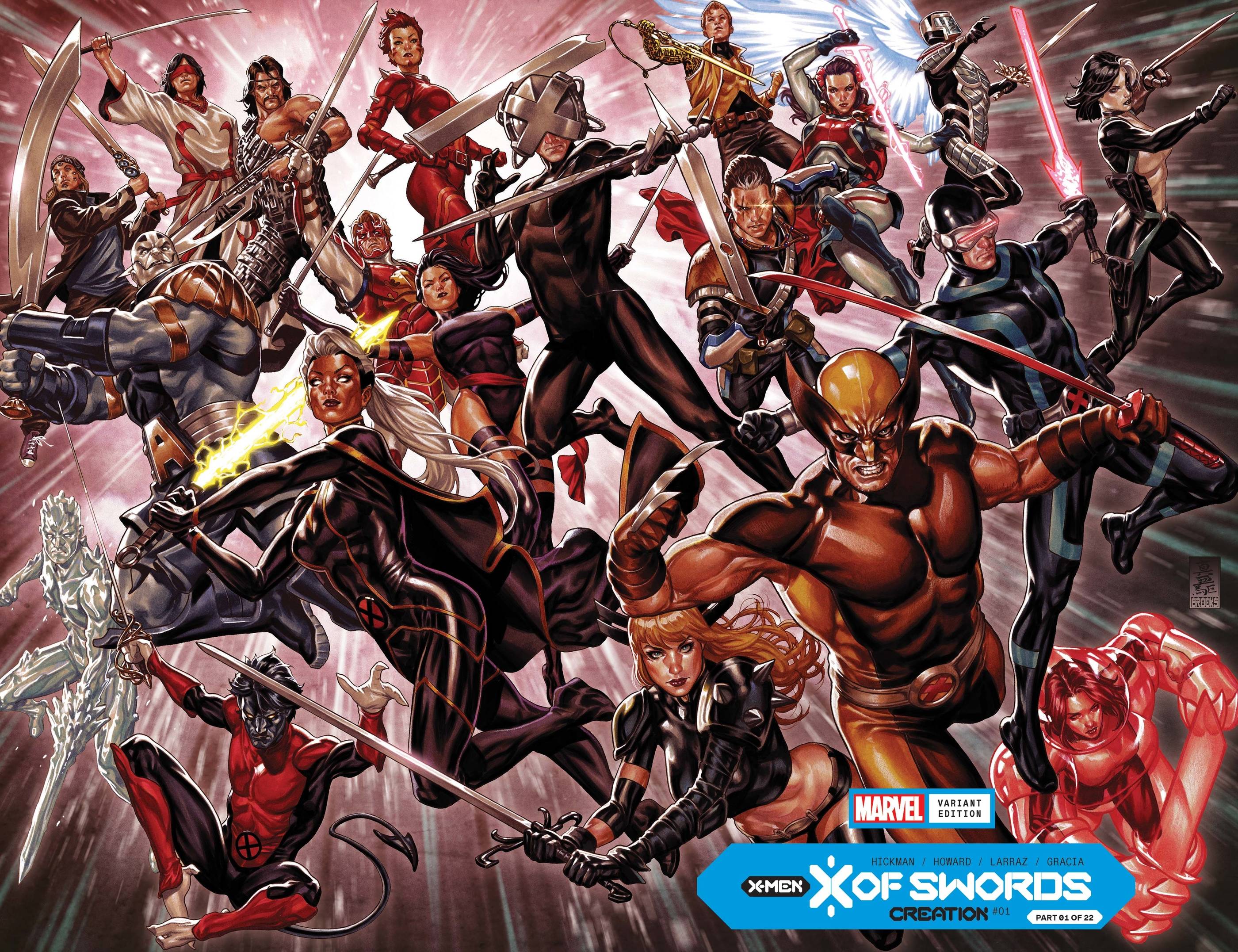
Nrama: What has surprised you the most about working on 'X of Swords,' and what do you think will surprise readers the most when they get to it?
Howard: What has surprised me the most – I don't think it's really that surprising to me, but it might be more surprising to others - and it's something I saw Jonathan mention recently, which is how little ego we all have when collaborating. We all want to make the best story possible, so as an event, we're never pulling against each other, we're all running in the same direction at the same time. I hope that comes across to readers in the story. I hope it feels that smooth from the outside, cause it's really all one big story, to us.
What I think will be most surprising to fans is how serious we are, and how real this gets.
As comic book fans we get jaded about the permanency of anything, or the meanings of anything, or the truth of the story. But we're all really loving our work right now, full speed ahead. I'm trying to answer without spoiling anything…
I think people will be most shocked by the scope. Really big things and even really small personal things change in these characters' lives – forever.
I've been Newsarama's resident Marvel Comics expert and general comic book historian since 2011. I've also been the on-site reporter at most major comic conventions such as Comic-Con International: San Diego, New York Comic Con, and C2E2. Outside of comic journalism, I am the artist of many weird pictures, and the guitarist of many heavy riffs. (They/Them)
